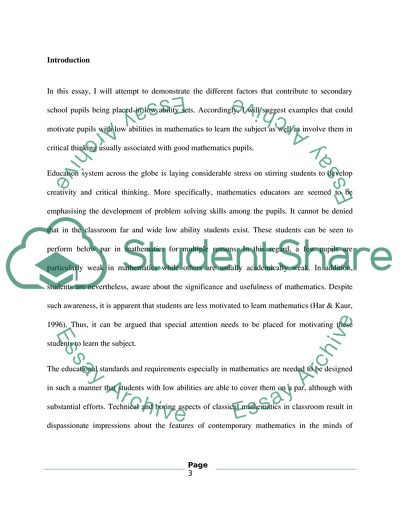Cite this document
(Motivating Learners in Low Ability Mathematics Set Coursework Example | Topics and Well Written Essays - 3750 words, n.d.)
Motivating Learners in Low Ability Mathematics Set Coursework Example | Topics and Well Written Essays - 3750 words. https://studentshare.org/education/1830486-motivating-learners-in-low-ability-mathematics-set
Motivating Learners in Low Ability Mathematics Set Coursework Example | Topics and Well Written Essays - 3750 words. https://studentshare.org/education/1830486-motivating-learners-in-low-ability-mathematics-set
(Motivating Learners in Low Ability Mathematics Set Coursework Example | Topics and Well Written Essays - 3750 Words)
Motivating Learners in Low Ability Mathematics Set Coursework Example | Topics and Well Written Essays - 3750 Words. https://studentshare.org/education/1830486-motivating-learners-in-low-ability-mathematics-set.
Motivating Learners in Low Ability Mathematics Set Coursework Example | Topics and Well Written Essays - 3750 Words. https://studentshare.org/education/1830486-motivating-learners-in-low-ability-mathematics-set.
“Motivating Learners in Low Ability Mathematics Set Coursework Example | Topics and Well Written Essays - 3750 Words”. https://studentshare.org/education/1830486-motivating-learners-in-low-ability-mathematics-set.


